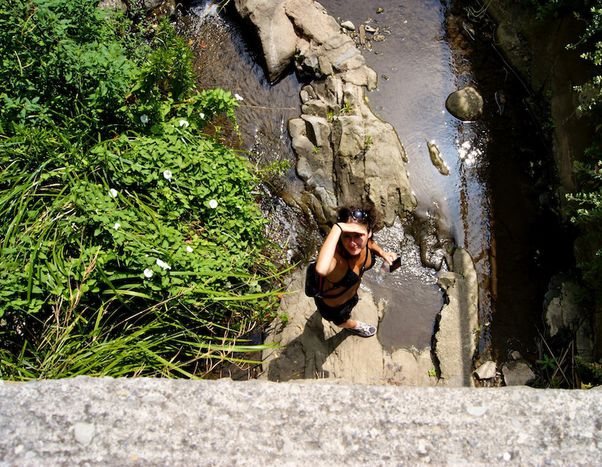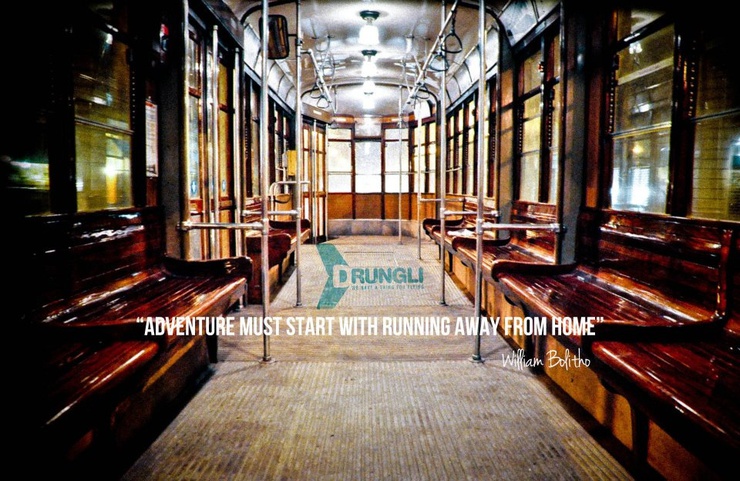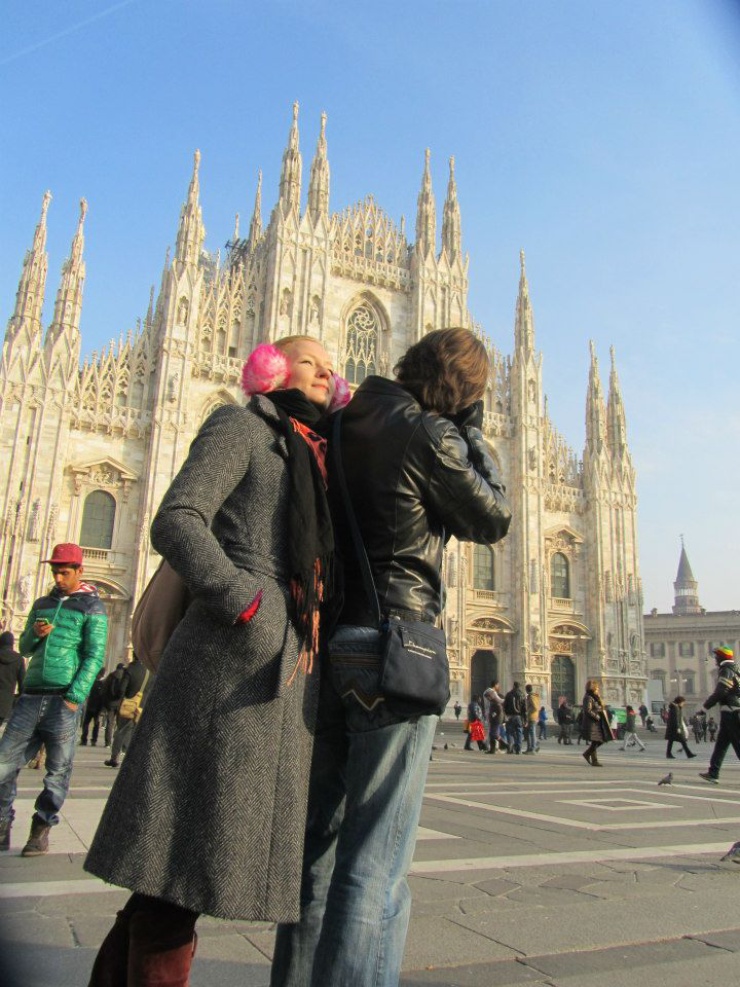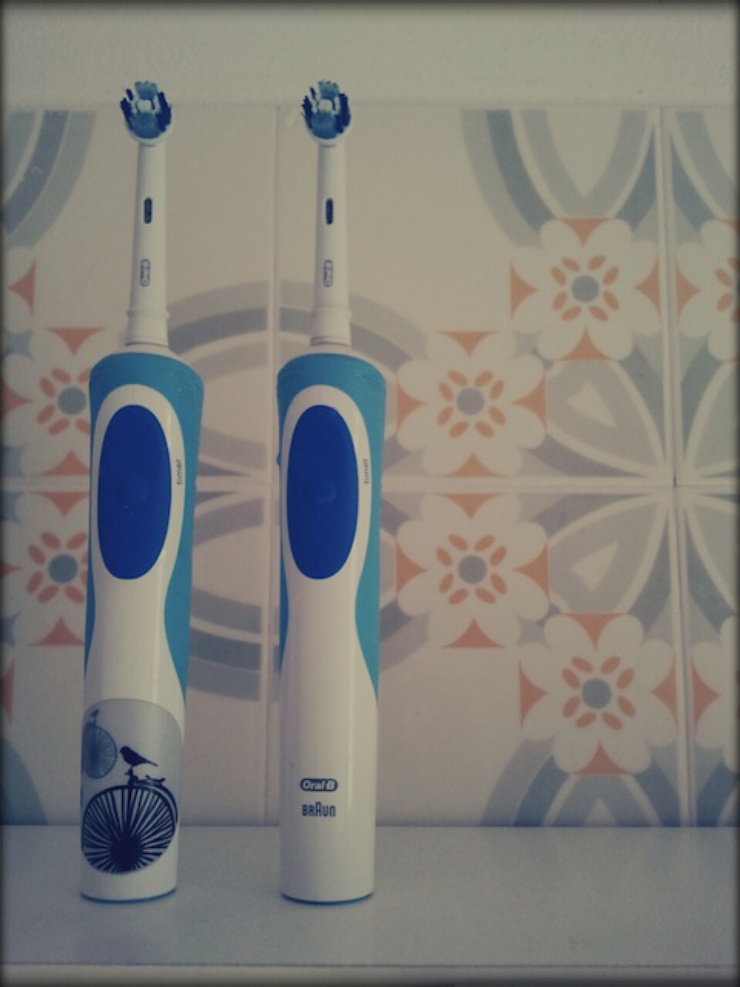
'Drungli': Couchsurfers create travel business with a philosophy
Published on
Orsi Tóth, 29, from Hungary, is an economist graduate. Her partner Ereid Gjergji, 35, is an Albanian living in Italy, a graduate of engineering and maritime studies. The Albanian-Hungarian couple explain why they marketed their search engine business Drungli by appealing to adventure and spontaneity
cafebabel.com: Orsi and Ereid, you both met on the couchsurfing website. Has the experience changed today?
Orsi Tóth: We both were active couchsurfers for years. We still host occasionally, people we already met through CS, and I always enjoy it. This small step of intimacy that you invite a stranger stay in your home, allows you to open up, talk freely and enjoy different views. I gained really lovely memories, like taking a ride on the Isle of Wight on a motorbike or trying to see the sunrise from Gellért hill with Italian surfers. When you are in something from a long time ago, you unavoidably think that it was better in the beginning. That's how nostalgia works.
'I am sorry to see that couchsurfing became a company'
I am sorry to see that it became a company - not because profit seeking is evil, but because we need organisations and non-profits in this world as well, especially when we are talking about hospitality - and their PR problems - but curious to see how the actual site and community will evolve. I hope they will be able to figure out a business model that doesn't kill the baseline: this is not free accommodation, but accommodation for emotional and intellectual investment. However, if we regard couchsurfing as a way of travel, an attitude to each other, it is definitely here and strong.
cafebabel.com: How did you come up with your concept of a travel business?
O: In a way, it was easy - Ereid wanted to use it himself.
Ereid Gjergji: What did stimulate and excite us was the idea of leaving, without losing time, and of course without spending much. In short, everything we could not find on other sites.

cafebabel.com: Can it be a profitable business? Did you get advice and mentors?
O: It is important to have business model ideas and we definitely plan for profitability. It is a multiple-legged structure, and has been thought through and tweaked during the last eighteen months. The plan is to break even in twelve months. The best advice comes from our users: they are really amazing sending us their ideas, letting us know what they'd need to plan travel even easier, and it's a great inspiration.
cafebabel.com: What cultural differences or similarities do you experience in working together? Or other cultures?
E: What unites or divides us is related to our characters and individual paths. Who travels a lot like us feels deeply the meaning of becoming a citizen of the world, to be part of the humanity on the move, which changes at every encounter with other people. We are the people we meet.

O: We usually regard cultural differences as a source for observations and entertainment. The question is how you adapt and accept, not how big is the difference. With Ereid, we are completing each other very well in work and I couldn't name any cultural differences here, unless him being more laid-back and me more prone to stress. I'm not sure work ethic has a nationality: since both of us are hardworking, stubborn and willful, we can inspire and urge each other forward.
cafebabel.com: You use a marketing tool calling for adventure and spontaneous, cheap bookings. Is there a zeitgeist among young Europeans at least that this is how we want to live - wake up in the morning and just book a flight to Oz, for example? Can it work in a continent mostly racked by crisis?
E: The desire for adventure is typical of spontaneous people, without too much superstructures, it's part of those people who are pioneers like Colombo or Vespucci were. It's of those who travel to places they don't know to break the arrogance that makes us see the world as we imagine it. The journey is like a rebirth of ourselves, because we discover things we did not know about us.

O: This is how we want to live. There are severals roots to this ‘ideal’ of life. The travel sector has great marketing, so it's hard to say who is really inanely urged to travel and who is just on trend. The zeitgeist is here, because the technical possibilities are here: it is possible to work remotely, you can find dozens of cool things through the internet to do to earn money, and you can talk to your mum every night on skype if you wish.
'The zeitgeist is here, because the technical possibilities are here'
Second, this growing new generation of 'freedom-hunters' is exactly the product of the crisis. In a society where classic life and employment models don't work anymore, the creative will jump ship easily: you risk less by experimenting with new solutions for having a purpose of life. There is also a part escapism in this trend, but I can imagine much worse versions for escaping reality.
cafebabel.com: What are your predictions for travel across Europe in the future: can there be a new predictable zeitgeist to define it?
O: For our generation and the next it became totally natural to jump on a plane. When something becomes natural, there will be a leap of development again in it. I am interested in when will we see the first green airline and other services concentrating on sustainable solutions. I'm looking forward to how self-organised tours and activities on sites like Gidsy, will evolve. Low-budget airlines' operations are also paramount. Air travel became so essential for the masses that they rather put up with the rules and say goodbye to the glamour of flying in exchange for cheap fares - we also fly low cost airlines usually. So it is also an indicator of the required minimum in the industry and the current state of mind and financial situation of Europeans.
Images: courtesy of © Orsi Tóth official tumblr site; in-text Drungli advert courtesy of © Drungli on flickr



